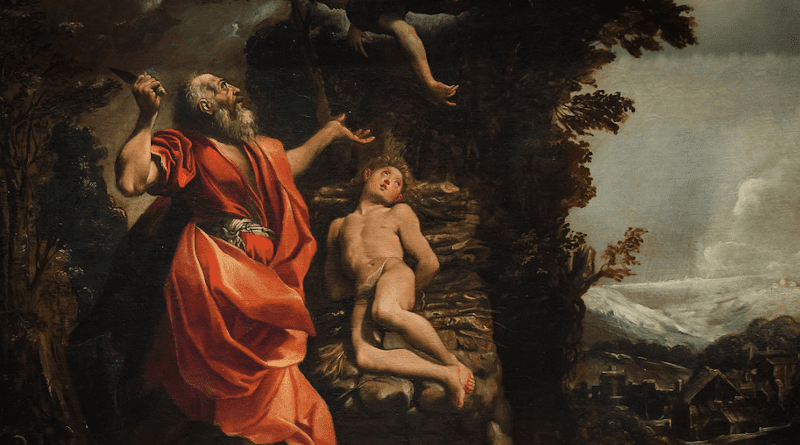Why The Three Abrahamic Religions Are Unique – OpEd
Does God, the creator of the whole universe, have the desire to be a ‘friend’ to one particular man on Planet Earth named Abraham? Yes! What makes Prophet Abraham, ‘an excellent example’ according to three different religion’s Sacred Scriptures is that they all proclaim Abraham to be the one “whom God chose to be His friend”: the Arabic Qur’an 4:125, the Hebrew Bible Isaiah 41:8, and in the Greek New Testament Book of James [the brother of Prophet Jesus] (James 2:23).
This is because before Prophet Abraham, there were no ongoing (to this very day) monotheistic religions anywhere in the world. All the polytheistic religions were a a single community of many shared Gods: “Once all humans were but a single community; then they disagreed (formulating different beliefs and rites). Had it not been that your Lord had already so ordained, a decisive judgement would have been made regarding their disagreements.” (10:19)
“If your Lord had so willed, He would have made mankind one community, but they continue to remain divided.” (11:118)
“Humanity was [of] one religion [pre-Adam polytheism]; then Allah sent the prophets as bringers of good tidings and warners and sent down with them the Scripture [the Torah, the Zabur, the Evangel, and the Qur’an] in truth to judge between the people concerning that in which they differed. And none differed over the Scripture except those who were given it – after the clear proofs came to them – out of jealous animosity among themselves. And Allah guided those who believed to the truth concerning that over which they had differed, by His permission. And Allah guides whom He wills to a straight path. (2:213)
Prophet Abraham the Hebrew (Genesis 14:13), marks the beginnings of the three ongoing Abrahamic Monotheistic Religions; Judaism, Christianity and Islam. But Prophet Abraham is called a Muslim in the Arabic Qur’an; and in the Hebrew Bible he is called a Hebrew [speaker] and an immigrant who crossed over the Jordan River. The term ivri (the Hebrew) first appears in the Torah, when Prophet Abraham is called “the Hebrew: “And it was told to Abram the Hebrew” (Genesis 14:13)
And Prophet Joseph uses the name as both a geographical and an socio-ethnic class term: “I was kidnapped from the land of the ivrim” (Genesis 40:15), and “The Egyptians could not eat with the ivrim, since that would be an abomination” (Gen. 43:32)
The three Abrahamic religions; Christianity, Islam, and Judaism, are closer to each other than each of them is to any non-Abrahamic religion. Yet each of the three religions is unique; and each relates to the other two in its own unique way.
There could be no Christians before the birth of Prophet Jesus; and although there have always been many individual Hanif Muslim monotheists, they could not be members of the Muslim Ummah prior to the revelation of the Qur’an to Prophet Muhammad. Thus, Judaism is unique as the Hebrew people actually proceeded the Jewish religion.
Thus Qur’an 3.67 states: Abraham was not a Jew, nor a Christian; but he was one pure of faith and a muslim (who submitted to the one God with a sound heart). He was never of those who associate partners with God.”
Abraham could not be a Jew or a Christian, as both the Torah and Gospel were revealed centuries after Abraham. Historically, Judaism, Christianity and Islam are the names given to the ongoing religions revealed to Prophet Moses, Prophet Jesus and Prophet Muhammad respectively, for their own faithful followers.
The Christian community and the Muslim Ummah were formed by those individuals who became faithful believers in the Gospel or the Qur’an. But the Banu Israel-the Jewish People only received the Torah after many generations of oppression in Egypt, when the Jewish People escaped and stood at Mount Sinai and received the Torah from Prophets Moses and Aaron. This is why the history of the people of Israel makes up such a large place in the Hebrew Bible.
Indeed, the name “Israel” is mentioned 2,319 individual times in the Hebrew Bible as the historical experiences of the nation of Israel (the descendants of Jacob/Israel) is the central focus of most of the books in the Hebrew Scriptures; with the major exception of the Book of Job; which some rabbis thought was written by a non-Jewish saint or prophet.
The word Muslim is a religious identity term that refers to faithful monotheistic believers like Jews and Unitarian Christians. The word Hebrew is a linguistic, geographical and ethnic identity term like German the language, Germany the homeland and Germans the people. The word descendent is a biological inherited birth identity term like nobility or tribe.
Prophet Abraham’s grandson Prophet Jacob, whose name is changed to Israel, becomes the name the People of Israel, who in the book of Exodus, were delivered from Egyptian oppression. Prophet Jacob receives the name Israel that will become the name of the Jewish nation for the next 3,500 years and this is the name used by both the Christian New Testament and the Muslim Qur’an.
During the 12-13 centuries between Prophet Moses and Prophet Jesus the People of Israel were the only ongoing monotheistic community. Not every Jew was faithful to all the teachings of the Torah, but enough were so that Judaism never died out; and the covenant between God and People of Israel remained an ongoing partnership.
Jews still believe that we can help fulfill the 2700 year old vision of Prophet Isaiah: “In that day there will be a highway from Egypt to Assyria. The Assyrians will go to Egypt, and the Egyptians to Assyria. The Egyptians and Assyrians will worship together. In that day Israel will join a three-party alliance with Egypt and Assyria, a blessing upon the heart. The LORD of Hosts will bless them saying, “Blessed be Egypt My people, Assyria My handiwork, and Israel My inheritance.”…(Isaiah 19:23-5)

